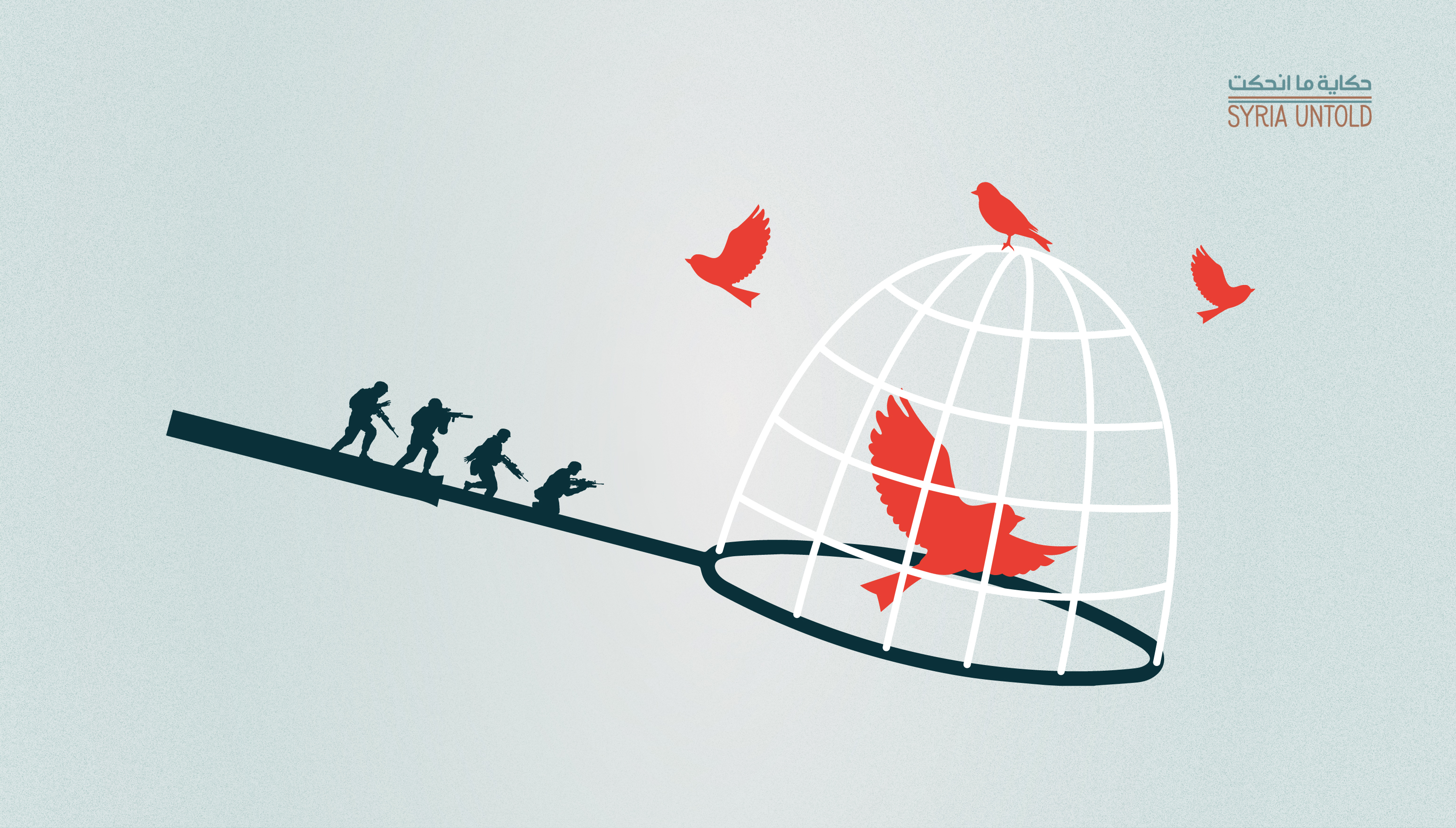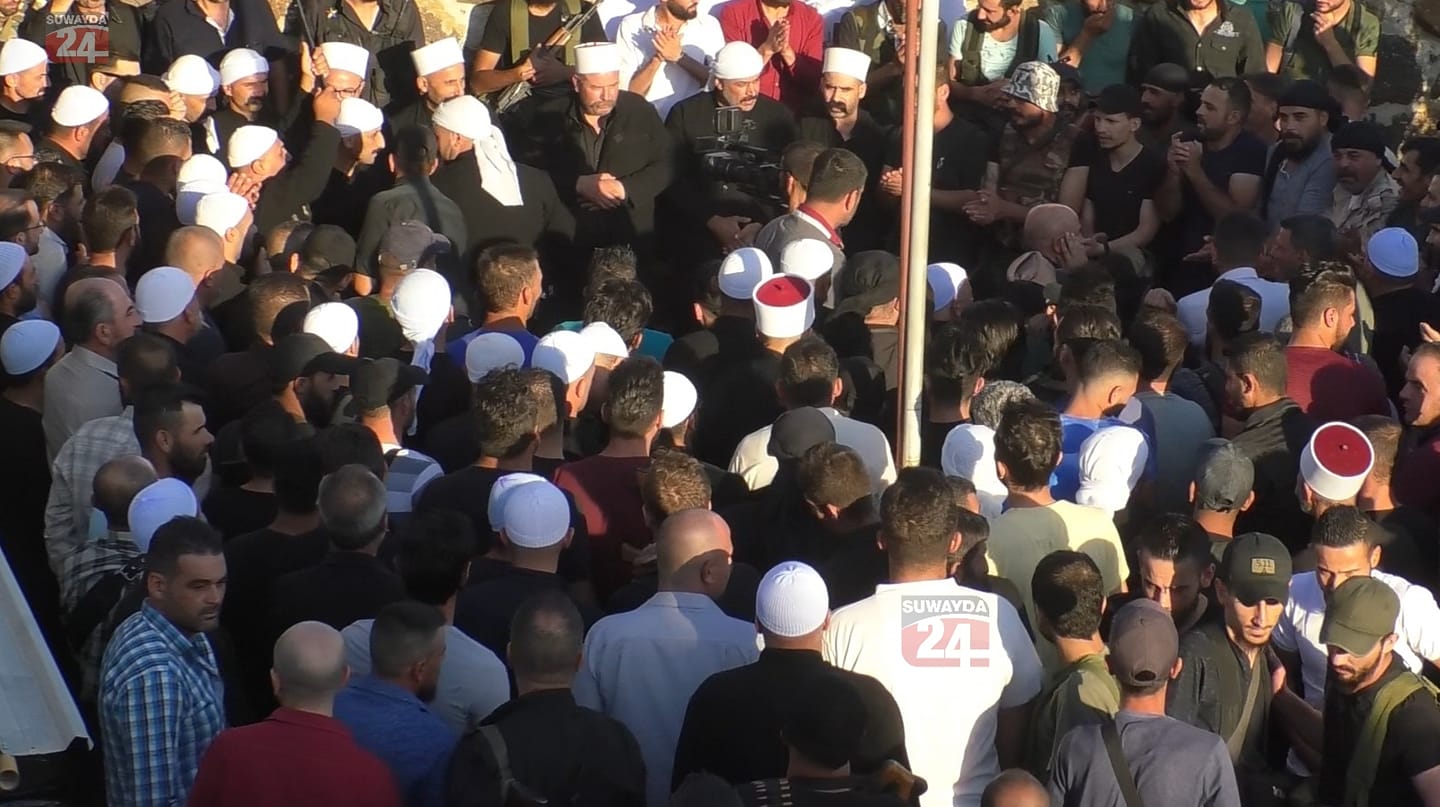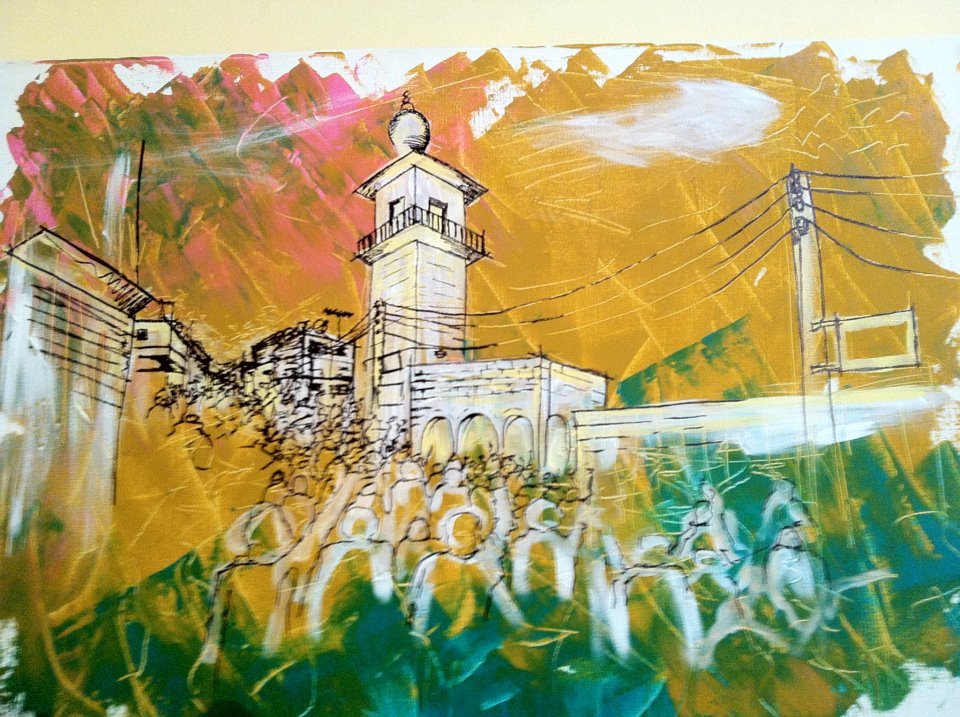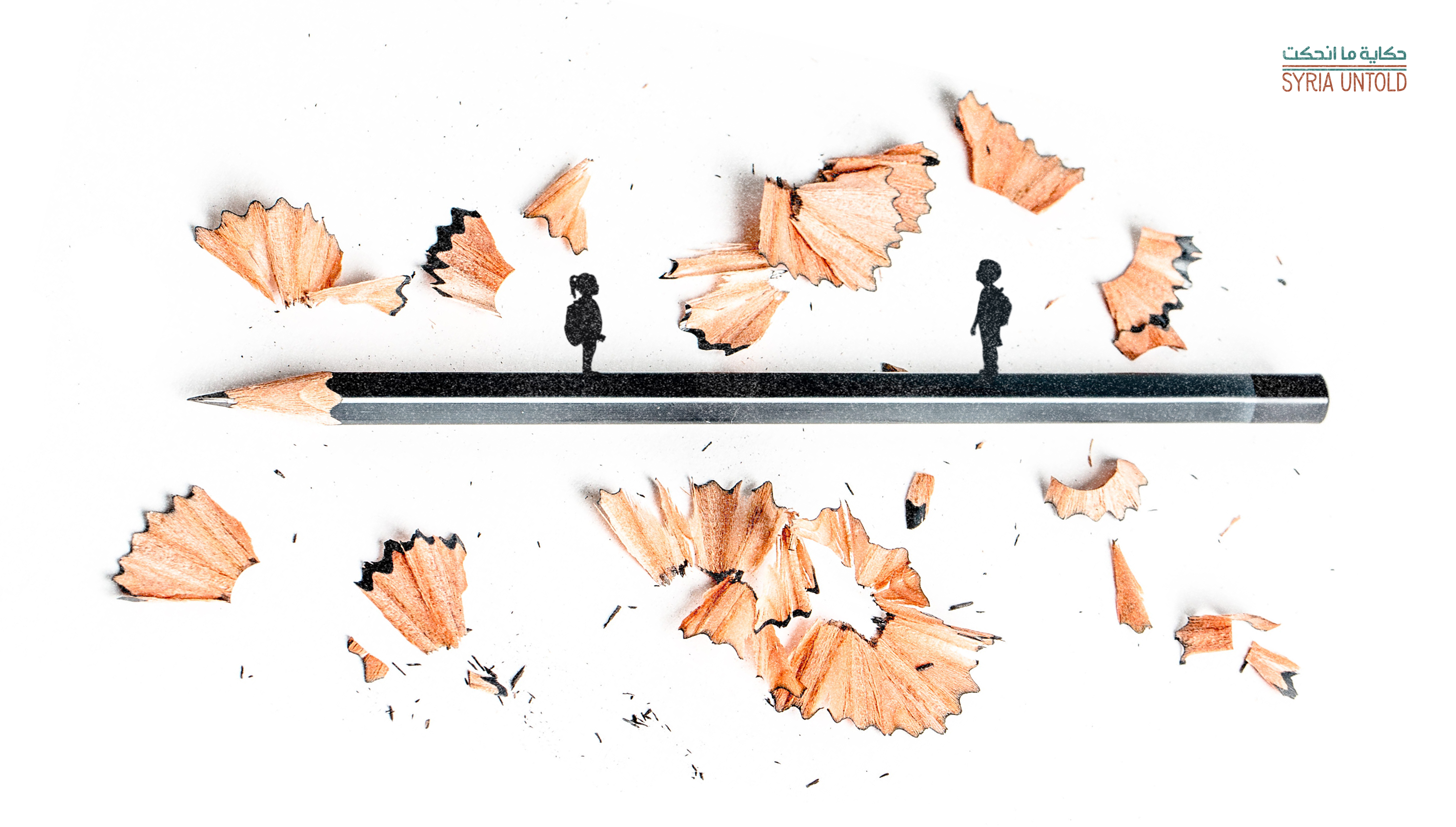SUWAYDA: On a main street in Suwayda city, 21-year-old Nasser* walks into a pharmacy and buys a mask. He zips the mask into his backpack for now, unconcerned about fears over the deadly coronavirus pandemic.
It isn’t until Nasser reaches al-Sir Square downtown that he pulls the mask over his mouth and nose, and adds a pair of sunglasses to conceal his eyes.
COVID-19 on the Syrian coast
28 March 2020
He stops on the sidewalk to check his watch. It’s eight minutes to 11am. He waits for the minute hand to reach 12 as he carefully watches people pass by around him. There could be security vehicles nearby.
Finally, at the top of the hour, a chant rings out from the square.
“We don’t love you, we don’t love you! Get out of here—you and your party!”
The anti-government slogan, shouted across al-Sir Square, marks the beginning of today’s demonstration—the latest one since early June, when Suwayda residents started heading to the streets by the hundreds amid rising prices for everyday goods, and unprecedented economic collapse.
Young protesters who have been standing apart from one another in the city square suddenly gather close, pulling out signs and banners that they had hidden in their backpacks or under their clothing. Nasser stands behind the crowd as the people around him draw their phones from their pockets to take videos. They make sure to film from behind—that way, the protesters’ faces can’t be seen when the videos later spread across social media.
Their voices and bodies seem to fuse together as they call out political slogans made famous across Syria over the past nine years of revolution and war.
“The people want the fall of the regime!”
From ‘You Strangled Us’ to ‘You Destroyed Us’
The only majority-Druze governorate in Syria, Suwayda has not witnessed the same degree of wide-scale devastation and displacement as other parts of the country.
But the southern governorate has been far from silent. When thousands of Syrians began descending to the streets in 2011, those from Suwayda were among them. And today’s protest movement demanding political reform echos 2015, when a group of activists launched a Facebook campaign called “You Strangled Us.”
The goal at the time: to improve living conditions in Suwayda. When participants in the campaign started holding public sit-ins, they fell short of using direct anti-regime slogans. The largest demonstration was on September 3 of that year.
The following day, explosions targeted members of Suwayda's opposition Men of Dignity movement, killing its founder and respected Druze cleric, Sheikh Wahid al-Balous, along with dozens of civilians. Less than a year later, activists launched yet another protest campaign. This time, they called it: “You Destroyed Us.” It lasted until May 2016.
Four years on, 2020 has so far seen an unprecedented drop in the value of the Syrian lira, as the economy slips into freefall. A sweeping new set of US economic sanctions put into force this month under the so-called Caesar Act threaten to make matters worse. And people from Suwayda now living abroad in the Gulf or Europe can do little to help their family members back home, as Syrian security forces go after local money transfer offices that aren’t adhering to the official exchange rate. Large sectors of Suwayda's population have found themselves trapped in a worsening economic situation, with local religious and familial aid groups too broke to step in and help.
And so the protests have returned to the streets of Suwayda—this time, under the banner “We Want to Live.”
The protesters of 2020 are young, most of them under 30 years old and with few job prospects. Many have never before been politically active, according to residents in Suwayda city. At one recent demonstration, most students told a SyriaUntold reporter they had no strong political opinions one way or another. Some even expressed support for the Syrian government. But the poor economic and security situation in their corner of Syria had nevertheless pushed them onto the streets that day to protest.
Among those at one protest was Nasser, who recently started his university studies in economics.
“In the past several years, I’ve gone to many pro-government rallies. I didn’t feel like the country was going in the right direction, and I was influenced by people who said there was a conspiracy to destroy [Syria],” Nasser told SyriaUntold. He dropped out of his studies not long after starting, unable to afford the expenses.
“Now my friends and I are convinced that there’s no way to live a decent life unless the regime changes.”
“We all saw [the videos] on our phone screens—they didn’t attack anybody. They were just raising their voices to demand their rights, and for that they were dragged away, beaten and arrested.”
Omar, another young protestor, said that he, too, has seen a shift in public opinion, though he has long participated in anti-government protests. “When we first started going out in the early years of the revolution, many people here in Suwayda were against us. They accused us of calling on destruction, or sabotage, or that we were agents,” he told a reporter at one recent demonstration.
“Now, most people’s opinions have changed. I think it’s safe to say that many people still don’t support the protests, but they aren’t with the regime anymore, and they don’t want to defend it.”
Arrests and unknown fates
Protests decrying the economic situation in Suwayda in recent years did little to raise the attention of authorities in Damascus, sources inside the governorate said.
2020 has been different. The protests are bigger, and the slogans are bolder, with signs and chants demanding the “fall of the regime.” A wave of media coverage followed behind.
Government authorities have taken notice. Earlier this month, they arrested Suwayda activist Raed al-Khatib after he participated in a protest. Security forces then reportedly attempted to arrest another protester, Rawad Sadeq, though he was able to escape with the help of local residents.
Raed has reportedly not been heard from since his arrest.
Then, on June 15, government security forces went out en masse at an anti-government protest, attacking demonstrators and rounding up 10 men. The government has since warned that it would transfer eight of the men from the Suwayda prison where they are now reportedly held, to an anti-terrorism court in Damascus, where they could face serious consequences.
'Just raising their voices'
Inside Sweida city’s Palace of Justice one in late June, a reporter finds the friends and family members of one of the arrested men waiting in a hallway. They hope to find that their loved one has be transferred here, rather than to Damascus.
“The men who were detained didn’t commit any crimes,” one friend, Rabeea, tells SyriaUntold.
“We all saw [the videos] on our phone screens—they didn’t attack anybody. They were just raising their voices to demand their rights, and for that they were dragged away, beaten and arrested.”
Ever since last week’s arrests, Rabeea and others have filed into the hallways of the Justice Palace, he says. Each day, they wait to see whether the detainees have been allowed to remain in Suwayda, here. The men have yet to arrive.
“[The authorities] are always threatening that they’ll take the men to security branches in Damascus,” Rabeea says. He worries there is little else he can do as the men risk being dragged into the government’s vast network of torture-filled security branches and prisons.
“If they go to Damascus, those 10 men will lose their lives, just because they demanded their rights to live.”
*SyriaUntold has changed the names of all sources quoted in this report, to protect their safety.








